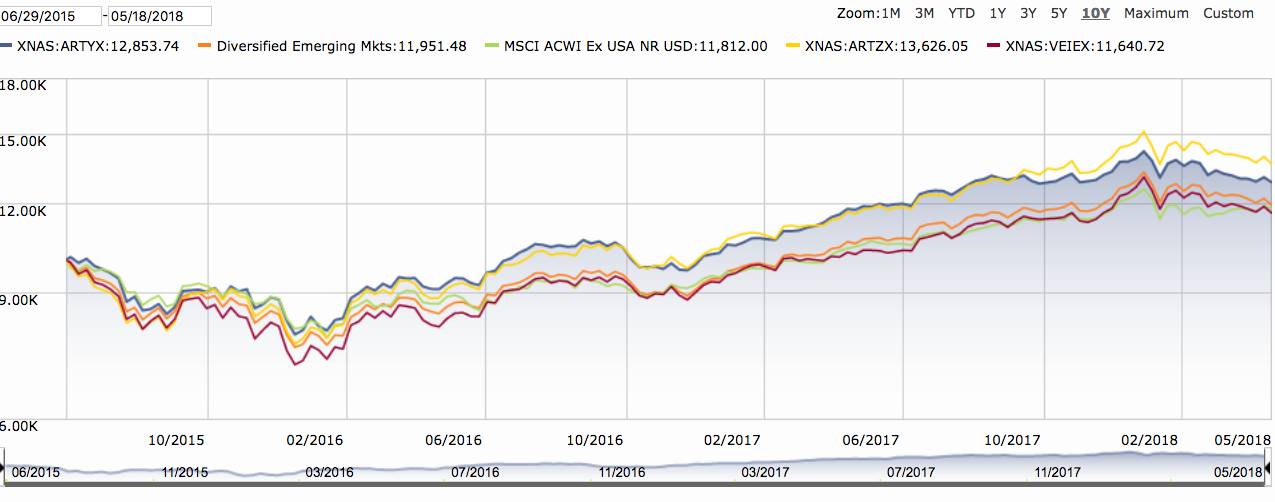DODIX and MWTSX. Needless to say, they are underperforming so far this year.
You may need to say, because DODIX is at the 14th percentile so far this year, MTWSX is at the 42nd percentile. They have outperformed AGG (a proxy for the domestic investment grade bond market) by
0.93% and 0.26% respectively YTD.
These funds don't just invest in short term bonds, but across the maturity/duration spectrum, and also delve a little into junk (around 6% or so currently). You're right that generally to have generated significant positive returns YTD, a bond fund must have been short term (or shorter), or taken on more credit risk.
Normally, I'd say that the extra yield offered by a longer (read intermediate term) fund has a good chance of compensating for greater losses than a short term fund would experience due to rising interest rates. But currently the yield curve is fairly flat - 2 year treasuries yield 2.58%, 10
years 3.08%, and 30
years barely any more at 3.20%.
https://www.treasury.gov/resource-center/data-chart-center/interest-rates/Pages/TextView.aspx?data=yieldAn intermediate bond fund with, say a 5 year duration would lose 2.5% if there are a couple more (1/4%) rate hikes this year - that should pretty much eat up its SEC yield for the year. So for now (read: the next 2-3 rate hikes or the rest of the year), a short/ultra short term bond fund might be the better choice.
There is another alternative that meets your requirements. Buy 6 month treasuries - they currently yield over 2%, and after six months, if interest rates rise as expected, you can buy higher yielding treasuries or buy a bond fund at that time.
Regarding PONAX:
1) It's an excellent fund at what it does
2) Its performance is just about the same as DODIX YTD
3) While derivatives don't spook me, I am concerned that I can't explain its duration. On PIMCO's page for the fund, the duration for each sector of the fund is listed as under 3
years, yet it says that the effective duration for the fund as a whole is 4.13
years. Which is why I don't know how it is computing its numbers (i.e. I don't understand how its portfolio is acting as a whole, to lengthen its effective duration beyond that of all of its components).
https://www.pimco.com/en-us/investments/mutual-funds/income-fund/a4) The fund is sold without a transaction fee and
load-waived at Fidelity and elsewhere.
https://fundresearch.fidelity.com/mutual-funds/summary/72201F474